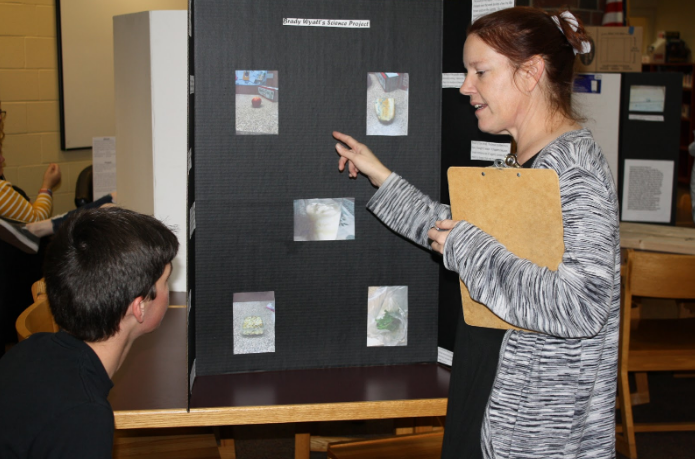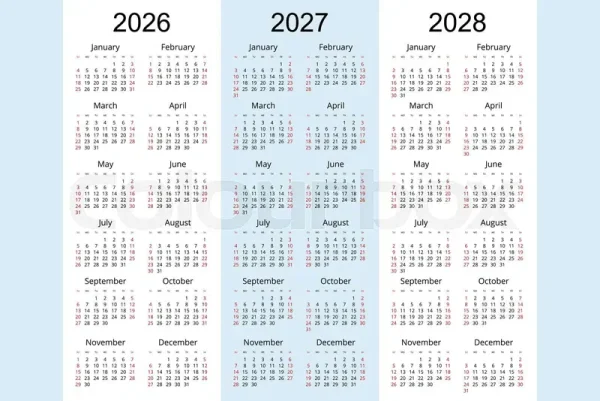Ross High School Institutes More Project Based Learning in Classrooms
Science teacher Mrs. Beth Mitchell discusses with Sophomore Brady Wyatt his science fair project
Podcasts, Socratic seminars, and public speakers are now filling the student-driven classrooms of RHS after a district-wide initiative has encouraged a trending style of teaching– Project Based Learning (PBL).
The change comes after RHS began looking for new ways to incorporate everyday society into classrooms.
According to eLearningIndustry.com, “Project-based learning focuses on enabling students to face real world situations simulated in the forms of the projects. Students learn while doing what they know and develop new learning around hobbies, passions, and careers. . .”
Multiple teachers have been practicing the technique for years, including social studies teacher Mrs. Sharon Berlage.
“I was fortunate to learn about PBL in a workshop I took several years ago. I used this approach in my Economics class and later in the CCP Personal Finance class. At the time I didn’t have other teachers to bounce ideas off of. Now I can talk to teachers throughout the building about the process and what they are trying in their classrooms,” said Berlage.
The change has been dramatic for some students, especially since it is a method that many students weren’t initially taught in their earlier years of education.
Senior Ally Moore explains her experience with the technique and how it affects her classes.
“It has helped me stay focused in class because there are more hands-on activities rather than just taking notes from a slideshow for 90 minutes. Also, learning something in multiple different ways helps me remember the content better. . .,” said Moore.
Concerning how PBL correlates to test scores, theLearningCounsel.com states, “In a new study, PBL helped students perform better on standardized assessments and project tests than students in direct-instruction programs.”
Direct-instruction programs are another style of learning that centers around a teacher explicitly standing in front of a classroom to teach.
When asked about a difference in her own scores, Moore said, “. . . I think this way of learning has increased my test scores.”
Though the learning style is known to increase test scores, students like Moore have explained other ways the process can be improved to further boost assessment results.
“. . . Maybe make homework assignments more project-based, like have students make mini-posters, or pamphlets, rather than just doing worksheets. I think that would be more enjoyable and beneficial for the students,” said Moore.
With PBL on the rise in the classroom, students are able to spend their 180 days of school encouraging college and career readiness within themselves.

Lainy is a senior and this is her second year in journalism. As a Staff Writer and Editor, Lainy is beginning to experiment with her future of a major in journalism. She spends most of her time being a barista outside of school while still juggling being a member of NHS, the Cappies, VAB, Student Body, Mock Trial and SNHS. She looks forward to pursuing her passion and furthering her education in journalism.






